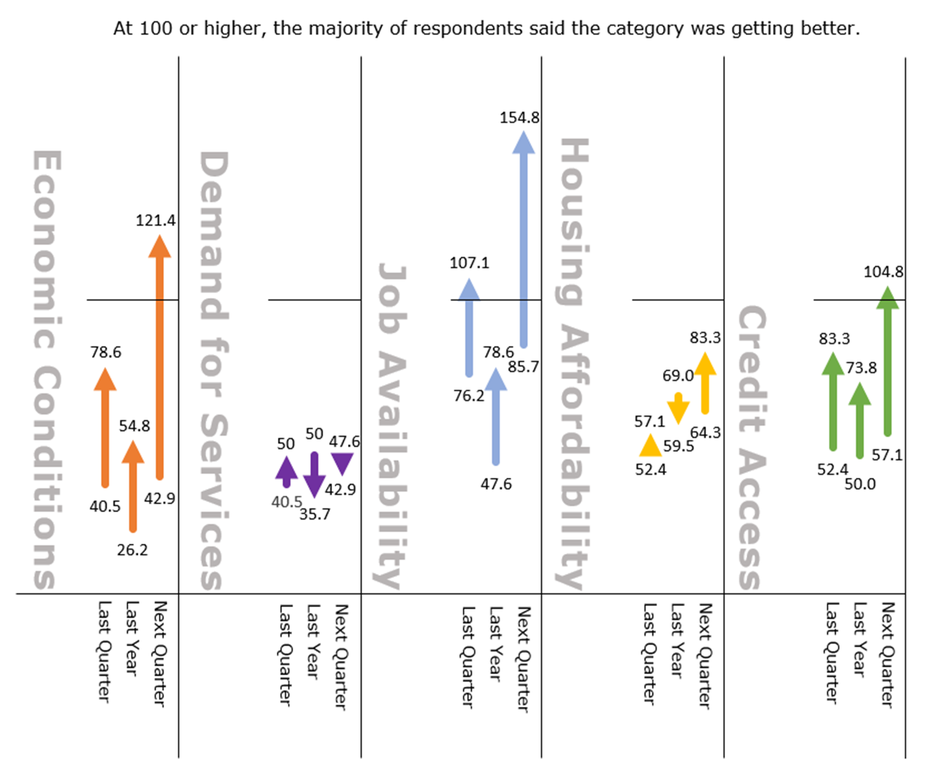Since our last survey in November 2020, the economy has changed significantly. Job numbers are increasing and unemployment is decreasing. Both new cases and deaths related to COVID-19 consistently are declining. And while the rate of vaccination has slowed after an initial surge, about External Linkhalf of adults in the U.S. are vaccinated, making it safer for people to engage in activities they were doing pre-pandemic.
In the External LinkLow-to-Moderate Income (LMI) Economic Conditions survey conducted March 22 to April 1, 2021, we found that conditions are improving. The survey collects information from nonprofits and other agencies that serve the LMI community in the Federal Reserve’s Tenth District: Colorado, Kansas, western Missouri, Nebraska, northern New Mexico, Oklahoma and Wyoming. In addition to our standard questions, we asked respondents special questions about:
- the American Rescue Plan Act (ARPA)
- efforts they are making to address educational disparities exacerbated by the pandemic
- what efforts they are seeing to address racial equity.
Survey results

In this survey round, we found:
- Economic conditions are improving for LMI populations across most categories (Chart 1).
- Indicators of stress remain. The housing situation has not improved. Organizations continue to see a high demand for services.
- Responding organizations expect to see continued high demand for services as funds from ARPA are dispersed. They expect rental assistance and relief checks to have the biggest effects on LMI communities.
- For responding organizations working to address educational disparities, about half are working to provide computers and internet service. The other half are providing training in use of computers and online platforms.
- Most of the efforts to address racial equity involve more open dialogue and training. Some organizations are seeing increased funding opportunities for racial equity.
Looking forward
LMI populations likely will face continued barriers to economic participation. Many industries that employ a large share of low-wage workers continue to face barriers to full activity. The leisure and hospitality sector likely will take longer to recover. For instance, tourism businesses are still navigating the various constraints affecting travel and thus the demand for their business. The ARPA passed by Congress in March has many programs designed to provide relief to LMI households for many more months as the economy will need time to recover fully. But those funds eventually will run out or expire. Whether the economy is healthy enough for LMI populations to be full participants in the economy by then is a question we cannot answer yet.
